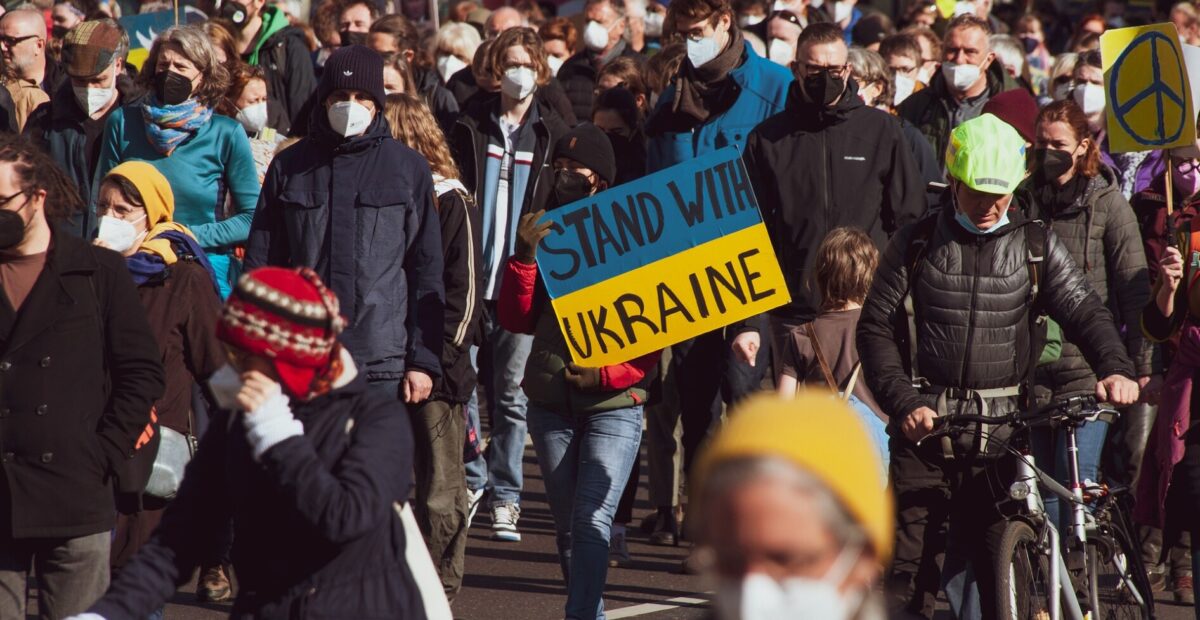
Workshop
Peace begins with an encounter

One year after the start of the war in Ukraine, a view of the current situation from the US: the desire for peace remains as strong as ever.
It’s a year since Irina confided with me: “If we lose, may God give us the strength to resist another persecution”: she spoke these words as the inter-religious vigil of prayer for Ukraine drew to a close, 7 days after 24th February, that decisive day in the history of her people and that of all of us.
Refusing to surrender to Russia has cost the lives of over 8,000 civilians, including many children, according to the UN Office for Human Rights, with another 13,000 wounded.
“These numbers are just the tip of the iceberg; said the High UN Commissioner for Human Rights Volker Türk, as the report exposes the loss and suffering that has been inflicted. “The toll on civilians is unbearable. 18 million are in dire need of humanitarian assistance, due to shortages of electricity and water during the cold winter months, whilst 14 million have been displaced from their homes”. The report does not include the number of Russian casualties, as this information has not been released.
“I hope that our country will not be exploited by the West in a personal war against Putin”, Olena explains in her anguish. She lives in New York, but her family are in Leopoli. “People are exhausted, they are suffering greatly; if weapons have to be used, western governments should use them to get Ukraine and Russia around the same table, to urgently negotiate for peace”. Politically the two countries continue to tighten their grip, and UN resolutions will be useless if they do not have the power to open up dialogue and forge a road to peace.
A road, which this year, has seen many small and great initiatives bring Ukraine and Ukrainians, into the homes of 113,000 American families. 213,000 Americans responded positively to the ‘Uniting for Ukraine’ programme to welcome Ukrainian refugees; another 154,000 came through other channels.
In Minneapolis, the non-profit organisation ASIU, for the re-settlement of refugees, involved whole communities in providing lodgings, furniture, basic food supplies and advice on how to find jobs.
The war between Russian and Ukraine convinced Olympic gymnast Siobhan Heekin-Cannedy that the first step towards peace was to teach her two-year old daughter Russian; “I am American, but I obtained Ukrainian citizenship in order to represent the country of my ice-skating dance partner, at the Winter Olympics of 2014” explains Siobhan, who knows many Russians, who like her, have chosen a competitive career. As a Christian, her approach to the war, is to overcome walls no matter how high they become. “I sympathise with Ukrainians who no longer wish to speak Russian, but I am trying to teach the language to my 2 year-old daughter. It may seem hypocritical or weak, but for me, it is a way to dialogue in this tragic division”.
In Pittsburg, two Orthodox churches, one Ukranian, the other Russian, have co-existed side by side for over a hundred years. Their pastors and congregations feel the effects of the war all the more tangibly. In front of a sacred picture, two placards stand with the same message in large letters “We are united in prayer for peace in Ukraine”. Monsignor John Charest explains, “ in spite of risking their lives to speak out against the invasion, a number of Russians have done so”. It is better not to say “attack by Russia”, but “attack by Putin” since not all Russians support the action he has taken.
The war in Ukraine consistently raises the issue of the power of veto, which only the permanent members of the UN Security Council may exercise.
The vetoes imposed by Putin’s government, even on humanitarian aid, have led the General Assembly to demand that the decision whether to impose this ban be debated publically. Therefore, since last March, each time a Security Council resolution is vetoed by one of its five permanent members, it must explain to the 193 members of the General Assembly, its reasons for not taking action, even in the midst of war crimes. “We cannot always prevent a tsunami, but in the face of evil, we can continue to give witness. Sooner or later trust in God will prevail”; these are the words of metropolitan archbishop Borys Gudiak from the Ukrainian catholic archdiocese of Philadelphia, who throughout this long year has continued to meet tirelessly with the faithful, with wounded servicemen, and families who have been torn apart – living proof that peace always begins from an encounter.




